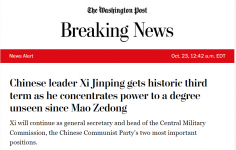ASEAN bracing for US-China rivalry to explode
Richard Javad Heydarian
Chinese paramount leader Xi Jinping’s
fiery address before the Chinese Communist Party’s 20th Congress has dominated recent headlines, not least regarding his comments on Taiwan.
Despite Xi’s vow to pursue “peaceful unification” with the self-ruling island, the Chinese leader expressed his willingness to use force and flex muscles amid
“stormy seas” in an increasingly volatile geopolitical environment.
Xi’s hardline
ideological positioning and seeming refusal to loosen domestic political and Covid-19-related restrictions has raised concerns over the future of
China’s sputtering economy.
For the
first time in three decades, numerous countries in the region, from India to Bangladesh, Vietnam and the Philippines, are expected to outpace the Asian powerhouse for the foreseeable future. A decade earlier, Hong Kong-based expert Wily Lam
warned about the perils of China’s more inward and ideological turn under Xi’s leadership.
In Southeast Asia, however, there are also growing concerns over an increasingly ideological turn in America’s foreign policy bereft of a constructive economic strategy. Both the Biden administration’s newly-released
National Security Strategy (NSS) document, as well as the
Interim National Security Strategic Guidance, have shown that the Democratic-led administration is more Trump than Obama when it comes to Indo-Pacific affairs.
By all indications, Washington has fully embraced ideologically-driven geopolitical competition with China and Russia. In response, Singapore has warned of the possibility of major powers
“sleepwalking” into a major conflict in the near future.
To put things into perspective, China alone was
mentioned 55 times in the NSS while key Southeast Asian nations such as Vietnam were not even mentioned at all. The region’s largest nation, Indonesia, was mentioned only once, similar to US treaty allies such as the Philippines and Thailand. The whole Association of Southeast Asian Nations (ASEAN) was mentioned only three times.
Meanwhile, there is no clear constructive US economic strategy. The Biden administration’s Indo-Pacific Economic Framework (IPEF) was mentioned four times, but without any clear sign of a major breakthrough in American trade and investment policy anytime soon.
The fate of a US-led
Digital Trade Pact in the region is now also in doubt. To make matters worse, there is a growing possibility that Biden will skip the much-ballyhooed summits in
Thailand, Cambodia and potentially
even in Indonesia later this year.
To be sure, the Biden administration’s strategic posture is largely a response to the aggressive turn in Russia’s as well as China’s foreign policy. While Russia pressed ahead with its invasion of Ukraine, China has ramped up its military activities in the Taiwan Straits. That aggression has coincided with
deepening military and strategic cooperation between Moscow and Beijing.
Chinese troops under a Russian flag in a file photo. Image: Screengrab / RT
In many ways, the Biden administration has continued the predecessor Trump administration’s geopolitical assertiveness and trade wars. Nevertheless, Washington seems more reactive than constructive in its strategic outlook and approach.
This is particularly the case in Southeast Asia, a vital strategic theater in the Indo-Pacific. When Biden won the presidency in 2020, there were widespread hopes that Washington would re-embrace the multilateralist and trade-oriented approach of the Obama administration.
Authoritative surveys showed that Southeast Asian policymakers and thought
leaders largely preferred to build ties with a Biden-led US over China. To its credit, Washington began reciprocating Southeast Asian goodwill in its first six months in office.
By the middle of 2021, the new Democratic administration had seemingly embraced the maxim that
80% of diplomacy is simply showing up in regional capitals, including at ASEAN-led summits.
Top US cabinet members such as US Secretary of State Antony Blinken, US Defense Secretary Lloyd Austin and Vice President Kamala Harris all visited key Southeast Asian capitals throughout the second half of 2021. Singapore and Vietnam, in particular, hosted top US officials twice in just a matter of weeks.
The Biden administration also ramped up its “vaccine diplomacy”,
donating more than 23 million vaccine doses and over US$158 million in emergency health and humanitarian assistance to Southeast Asia nations. In response, grateful regional leaders such as Filipino President Rodrigo Duterte
publicly thanked America and, crucially, began reviving frayed defense ties.
The new US leadership also reassured its regional allies and partners, especially Taiwan and the Philippines, of its defense commitments in the event of a conflict with China. The upshot was increasingly robust defense relations with
both Manila and Taipei during Biden’s second year in office. By the end of 2021, the Biden administration
seemed in a strong position to reassert its regional leadership.
The real challenges, however, laid ahead. On one hand, Russia’s invasion of Ukraine as well as growing Sino-Taiwanese tensions reinforced the Trump era focus on “
great power competition.”
This was clearly on display in the Biden administration’s
newly-released strategic strategy document, which underscores how China is “the only competitor with both the intent to reshape the international order and, increasingly, the economic, diplomatic, military, and technological power to do it.”
The new document warns of China’s “ambitions to create an enhanced sphere of influence in the Indo-Pacific” as part of a long-term goal of “becom[ing] the world’s leading power.” In response, Washington has vowed to “defend our interests” and “compete responsibly” through “our network of allies and partners” in the Indo-Pacific region.
The Biden administration is starting to overlook Southeast Asia after a strong diplomatic start. Image: Facebook
As leading Indo-Pacific strategist
Raja Mohan argues, the newly-released NSS clearly shows that “the United States is determined to defend its primacy against China in the economic and security domains.”
While embracing a new era of heightened competition with China (and Russia), the Biden administration has yet to present any constructive economic strategy in the region. So far, much of Washington’s economic strategy has been punitive, including the
recent round of semiconductor sanctions against China that came right before the release of the NSS.
Given the centrality of China to regional production networks, such punitive measures risk a major blowback, especially for neighboring countries.
“The Biden administration’s latest move is a very serious one, I’m sure they have considered it carefully,” said Singaporean Prime Minister Lee Hsien Loong following the US imposition of a new set of sanctions on Beijing targeting its access to semiconductor-making equipment.
“It can have very wide ramifications,” the Singaporean leader warned. The Southeast Asian leader has also expressed concerns over a
lack of consensus on how to approach China’s bid to join the Comprehensive and Progressive Agreement for Trans-Pacific Partnership (CPTPP), which was an outgrowth of the Obama administration’s regional economic strategy.
While Washington has ramped up punitive measures, it has yet to provide any clear blueprint for its regional economic strategy. Neither has there been any substantive updates on the proposed
Digital Free Trade Agreement with Indo-Pacific nations, which was announced last year, or the Biden-led IPEF, which was announced earlier this year.
Singapore’s Prime Minister Lee Hsien Loong is worried about a possible US-China clash in the region. Photo: Pool
Meanwhile, China has pressed ahead with a number of multi-billion-dollar infrastructure projects from Laos to Indonesia under its Belt and Road Initiative (BRI). Beyond the absence of a concrete American alternative to China’s economic initiatives, Southeast Asian states are also worried about trade wars and investment restrictions turning into kinetic conflicts.
“Around us, a storm is gathering. US-China relations are worsening with intractable issues, deep suspicions and limited engagement,” the Singaporean leader warned
ahead of the release of the NSS document.
“This is unlikely to improve anytime soon. Furthermore, miscalculations or mishaps can easily make things much worse,” he continued, echoing his heir-apparent, deputy prime minister Lawrence Wong’s expressed fears of the US and China “sleepwalk[ing] into conflict.”
Follow Richard Javad Heydarian on Twitter at @richeydarian
posted for fair use
Chinese paramount leader Xi Jinping’s fiery address before the Chinese Communist Party’s 20th Congress has dominated recent headlines, not least regarding his comments on Taiwan. Despite Xi’s vow t…

asiatimes.com

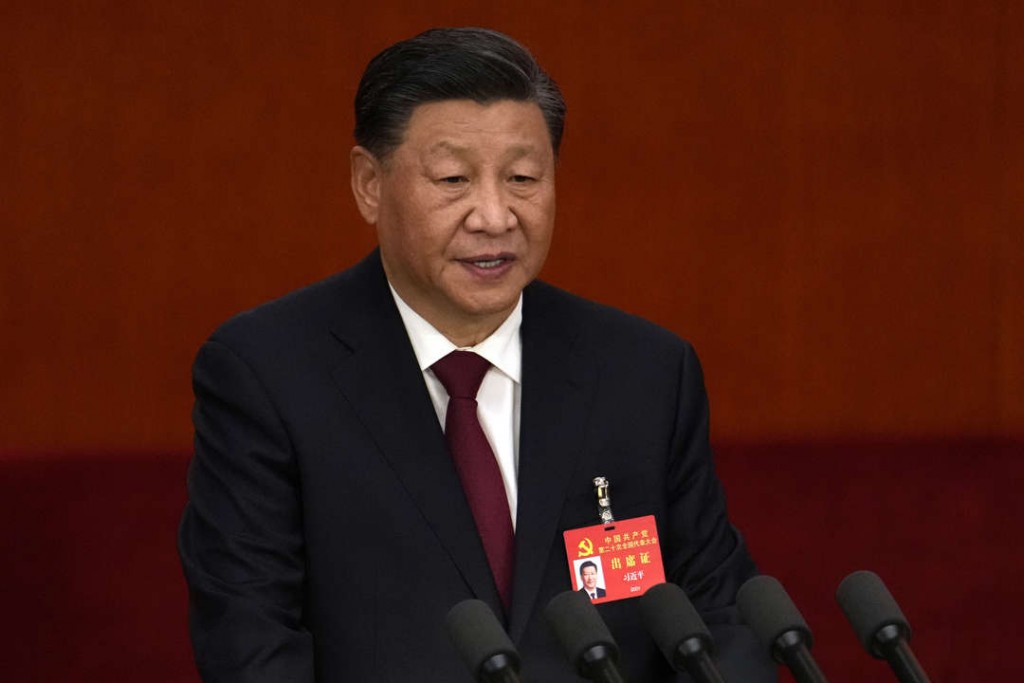
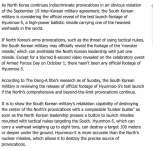
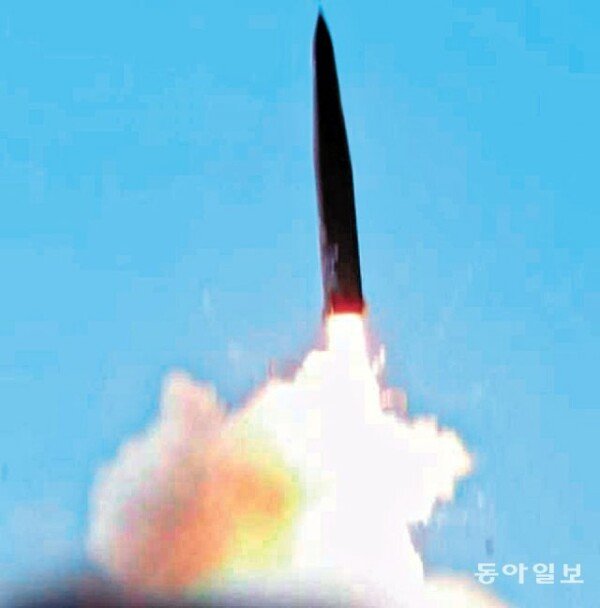




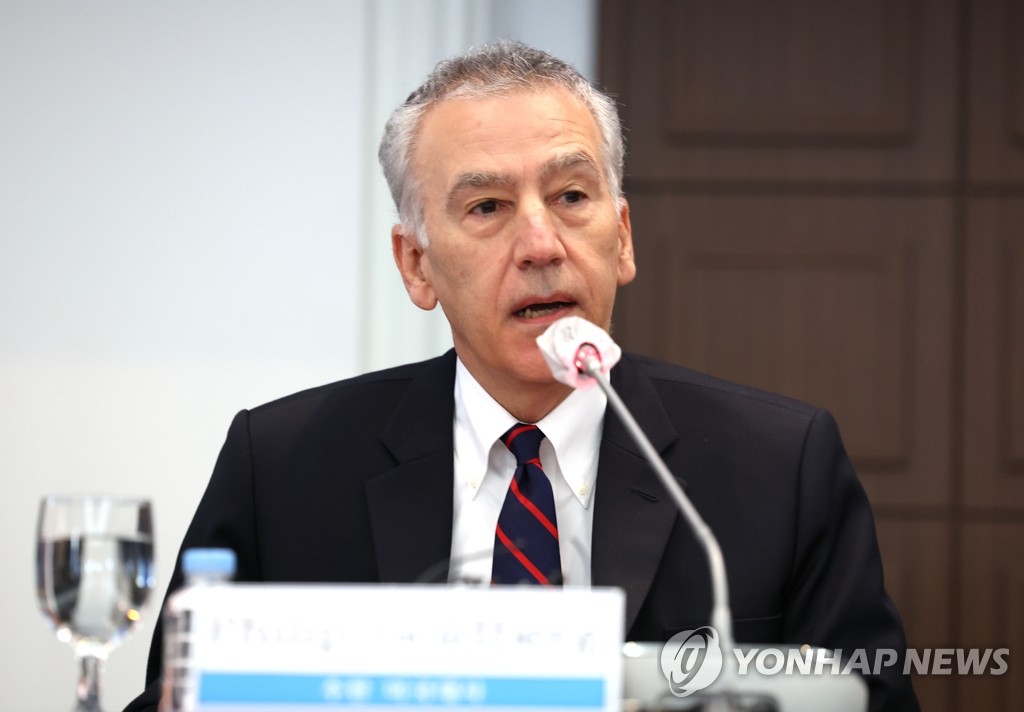

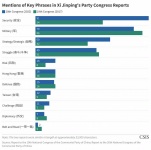

/cloudfront-us-east-2.images.arcpublishing.com/reuters/WHHSBB7XNZKV3N3OCRTQS3N7UA.jpg)


